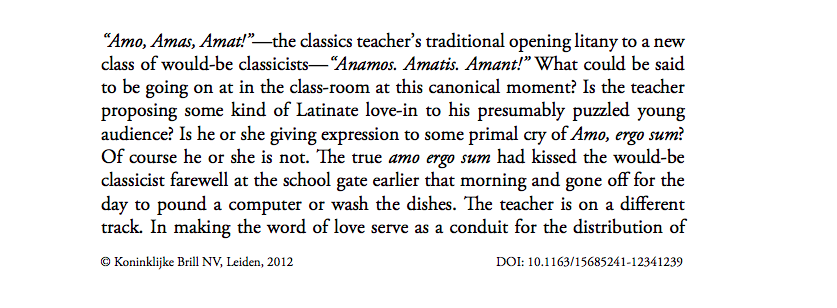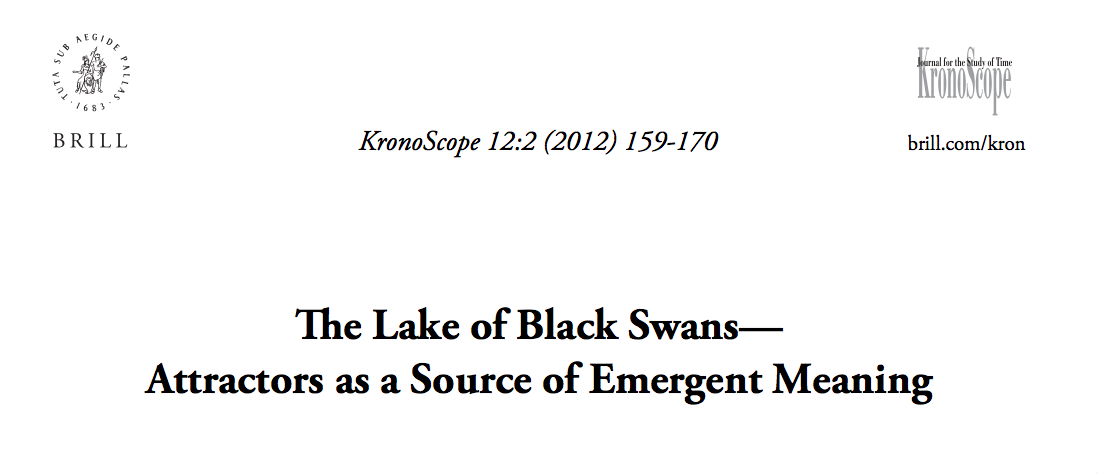Today, we are adding Nicholas’s seminal 2012 paper to the site. It is entitled ‘The Lake of Black Swans’, and was published in Kronoscope 12:2 (2012), the journal of the International Society for the Study of Time (ISST), of which Nicholas was Vice President, 2004-7. Here is the abstract, with the link to the paper below.
Abstract: The conventional Western understanding of communication is profoundly asymmetric, biased towards a formal concept of communication as a one-way distribution of meaning from a Sender to a Receiver—the view enshrined in the Information Theory of Claude Shannon and implicit in Dawkins’ theory of the meme as a semantic replicator.
Rational communication in the form of science has been singularly successful in identifying the probable and predictable, and thus in revealing nature’s laws. For the same reason rationality is fundamentally inadequate as the basis for a discourse with our chaotic planetary environment, where the probable and predictable are always in conflict with the improbable and unpredictable . . . a veritable lake of black swans (Taleb 2008).
The paper suggests that for our species to survive in that increasingly turbid lake we will need a more inclusive understanding of communication, taking into account both rational and relational communication, both the analytic and syncretic forms of meaning. The paper argues that the emergent forms of relational meaning have the potential to offer a more effective engagement with global risk than the predictive forms of the rational.
Here you can read Nicholas’s full paper, The Lake of Black Swans, published in Kronoscope 12:2 (2012), the journal of the International Society for the Study of Time (ISST):
The Lake of Black Swans, Nicholas Tresilian, Kronoscope, 2012


